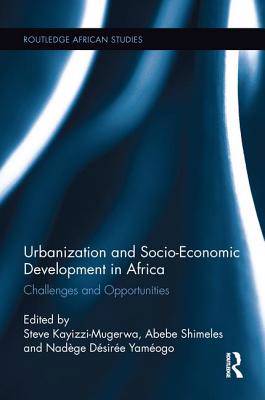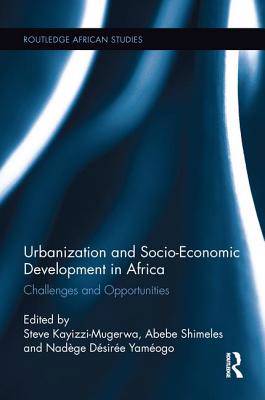
- Retrait gratuit dans votre magasin Club
- 7.000.000 titres dans notre catalogue
- Payer en toute sécurité
- Toujours un magasin près de chez vous
- Retrait gratuit dans votre magasin Club
- 7.000.000 titres dans notre catalogue
- Payer en toute sécurité
- Toujours un magasin près de chez vous
Urbanization and Socio-Economic Development in Africa
Challenges and Opportunities
Description
The main goal of this book is to put urbanization and its challenges squarely on Africa's development agenda. Planned urbanization can improve living conditions for the majority, help in the expansion of the middle class, and create conditions for economic transformation. However, many African cities have developed haphazardly, resulting in the decline of public services, in slum proliferation, and increases in poverty. African cities thrive on activities characterized by easy entry and low productivity, generally referred to as the "informal sector". Indeed, today some urban dwellers are poorer than their cousins in the countryside. In spite of reform attempts, many governments have not been able to create an enabling environment, with adequate infrastructure and institutions to sustain markets for easy exchange and production. This study argues that with careful policies and planning, the situation can be changed. If the recent natural resource-led economic boom that we have seen in many African countries is used for structural reforms and urban renewal, African cities could become centers of economic opportunity. The challenge for African policymakers is to ensure that urban development is orderly and that the process is inclusive and emphasizes the protection of the environment, hence green growth.
Spécifications
Parties prenantes
- Editeur:
Contenu
- Nombre de pages :
- 190
- Langue:
- Anglais
- Collection :
Caractéristiques
- EAN:
- 9781138687271
- Date de parution :
- 27-04-16
- Format:
- Livre broché
- Format numérique:
- Trade paperback (VS)
- Dimensions :
- 152 mm x 229 mm
- Poids :
- 285 g






